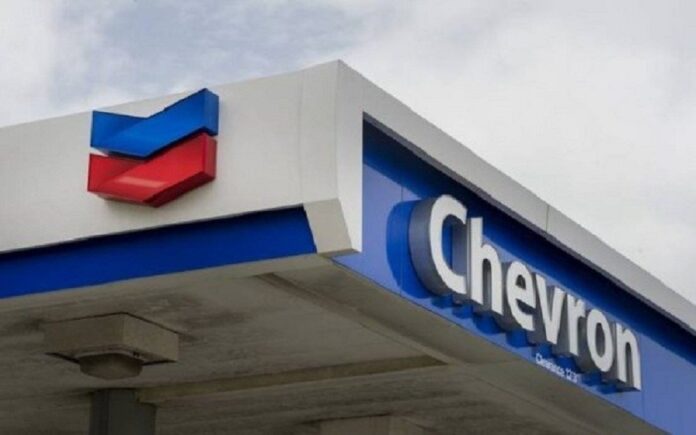Chevron Nigeria Limited (CNL) has made a significant announcement, revealing the discovery of a new oil field in Nigeria. This discovery, located in the shallow offshore area of the Niger Delta, is expected to yield up to 17,000 barrels of oil per day (bpd). Chevron’s new find comes at a critical time for Nigeria’s struggling oil industry, which has been grappling with production declines in recent years.
The oil field, dubbed a “new gold mine” by industry insiders, was discovered by the Meji NW-1 spud in Petroleum Mining Lease (PML) 49. The revelation has sparked optimism within Nigeria’s oil sector, which has been under pressure from multiple challenges such as sabotage, theft, and aging infrastructure.
In an official statement, Chevron’s Chairman and Managing Director, Jim Swartz, confirmed the discovery of the oil field. The announcement was made through the company’s General Manager of Policy, Government, and Public Affairs, Olusoga Oduselu. Swartz emphasized that this discovery aligns with Chevron’s broader strategy to expand its operations and develop new resources in existing areas.
“The discovery supports Chevron’s global exploration strategy to find new resources that extend the life of producing assets and deliver production with shorter development cycle times,” Oduselu said.
Chevron’s Meji NW-1 well was spud on September 2, 2024, reaching a total depth of 8,983 feet by September 13. The well encountered approximately 690 feet of hydrocarbons in Miocene sands, confirming the potential for oil extraction. Chevron completed the well’s operations on October 2, 2024, and the rig has since left the location.
Chevron’s discovery comes at a time when Nigeria’s oil production is in dire need of revitalization. In recent years, the country’s oil output has suffered due to factors such as sabotage, oil theft, and aging infrastructure. The country’s oil fields, particularly in the Niger Delta region, have been plagued by vandalism and illegal siphoning, resulting in a decline in production.
Data from S&P Global Commodity Insights indicates that Chevron holds a 40% interest in Oil Mining License (OML) 49, where the Meji NW-1 well is located, as part of a joint venture with the Nigerian National Petroleum Corporation (NNPC). The Meji field, which peaked at 51,000 barrels per day in 2005, has since seen production fall to around 17,000 barrels of oil equivalent per day (boepd), mostly consisting of crude oil.
This new discovery is expected to help offset some of the declines in production and contribute to Nigeria’s overall oil output. However, Chevron has not provided a timeline for when production at Meji NW-1 will commence or how much the new field is expected to produce in total.
The discovery of this oil field comes at a critical time for Nigeria’s economy, which is heavily dependent on revenue from oil exports. The country has faced severe economic challenges due to the fluctuation in global oil prices, as well as production disruptions in its oil sector. With oil accounting for over 90% of Nigeria’s export earnings, any decline in production has significant consequences for the country’s finances.
The discovery by Chevron is expected to provide a much-needed boost to Nigeria’s oil production, creating jobs and generating revenue for both the government and local communities in the Niger Delta. As Chevron and NNPC prepare to develop the newly discovered field, the local economy in the surrounding areas could benefit from increased employment opportunities and infrastructure development.
Oduselu also highlighted the importance of this discovery for Chevron’s long-term plans in Nigeria. “The NNPC-CNL JV will continue to collaborate with the Nigerian government and other stakeholders to support the development of the Nigerian oil and gas industry and the Nigerian economy in general,” he said.
Despite this positive development, Nigeria’s oil sector continues to face numerous challenges. Sabotage of oil pipelines and theft of crude oil have been major issues, particularly in the Niger Delta region. These activities have led to significant production losses, with many oil companies reporting that large portions of their output never make it to market due to theft.
Aging infrastructure is another critical issue that has hampered oil production in the country. Many of Nigeria’s oil facilities were built decades ago and are in desperate need of upgrades or replacement. However, the cost of replacing this infrastructure has been a deterrent for many companies, leading to further production declines.
Another major challenge is the global shift towards renewable energy, which has led some oil companies to rethink their investments in fossil fuels. While Nigeria continues to rely heavily on oil, many international oil companies are shifting their focus towards cleaner energy sources, which could have long-term implications for the country’s oil sector.

